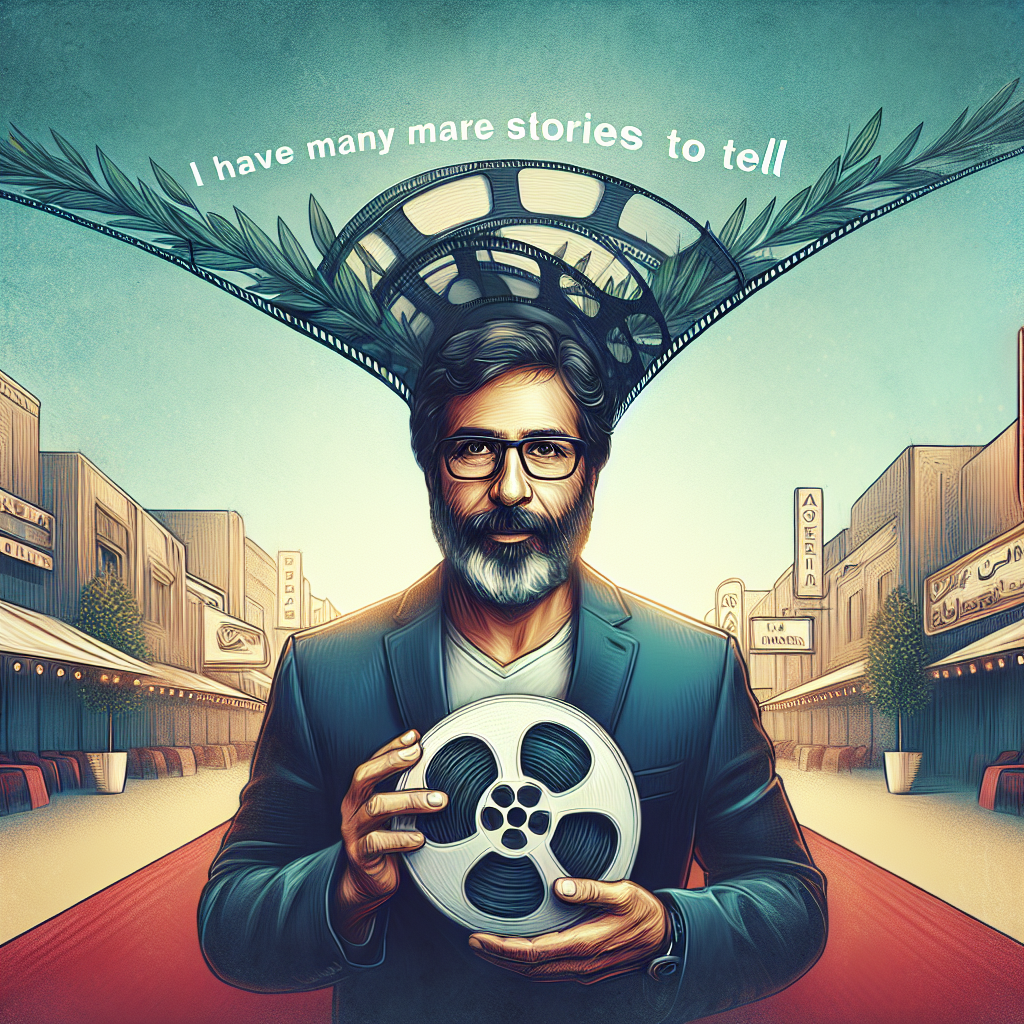Cannes Spotlight: Mohammad Rasoulof's Journey From Iranian Courtrooms to Film Premieres
Exiled Iranian director Mohammad Rasoulof presents his film 'The Seed of the Sacred Fig' at Cannes. The film, inspired by his own legal struggles, depicts a judge’s family amid Iran's 2022 protests. Sentenced for criticizing authorities, Rasoulof emphasizes storytelling over imprisonment amidst Iranian security crackdowns.

Exiled Iranian director Mohammad Rasoulof said on Friday that his Cannes Film Festival competition entry, about a court official's family during his country's 2022 protests, was born out of his own experiences with the justice system.
Rasoulof was in the French Riviera town to premier "The Seed of the Sacred Fig" almost two weeks after announcing he had fled Iran in the wake of his sentencing to eight years in jail and flogging. His lawyer said the 51-year-old had been sentenced for statements criticising authorities and making underground films. Iran's culture minister Mohammad Mehdi Esmaili told state media this month that Rasoulof's new film had been made illegally and there would be a crackdown on movies without permits.
Rasoulof told Reuters in Cannes that the idea for the film had come to him after being arrested and detained several times. He has been charged with offences ranging from filming without a permit to "collusion against national security". "In the last few years I was interrogated so much, went to court, and in prison was so much in contact with the people who run the prison," said Rasoulof, who won the Berlin Film Festival's top award with his 2020 drama about capital punishment "There Is No Evil".
"For me this question arose about the people who help this system run. What's their mindset? How do they think? What sort of people are they?" The film focuses on an investigating judge who grows increasingly stressed and paranoid as protests unfold across Iran over the death of Mahsa Amini, a Kurdish woman arrested by the morality police for allegedly flouting dress codes.
At home, his two daughters push back against his tightening grip over their lives while his wife tries to back him up. "I first came to Cannes 20 years ago, so my presence in Cannes is about the trajectory that I began and I'm very happy to be here today," Rasoulof said.
He had several other upcoming projects, including one that could be animated. "I thought that if I go to prison, the stories would remain to be told," he added. "I decided first to do the work that was left to do, and after that if the Islamic Republic still exists, and if these sentences still stand, that's when it will be the time to go to prison."
Iranian security forces have continued their crackdown on dissent since the protests that spiralled into some of the worst political turmoil since the 1979 Islamic Revolution. Iranian officials have blamed the protests and unrest on Iran's enemies, especially the United States and arch-foe Israel.
(This story has not been edited by Devdiscourse staff and is auto-generated from a syndicated feed.)
ALSO READ
BJP Workers Detained Amidst Protests Against Kejriwal at Rajghat
Political Drama Unfolds: BJP Protests Against Kejriwal's Rajghat Visit
Current US Domestic News: Protests, Polls, And Pressing Issues
Georgia's Controversial Foreign Agents Bill Signed into Law Despite Protests
Chinese govt orchestrates steps to suppress commemorations of upcoming Tiananmen Square protests, says HRW










